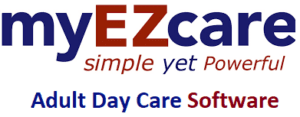Technology is rapidly changing the way we live and work, and the senior care and homecare industry is no exception. From wearables and remote monitoring to telehealth and virtual care, technology is revolutionizing the way seniors receive care and how homecare agencies provide support. In this blog, we’ll explore how technology is changing senior care and homecare agencies and the benefits and challenges of these changes.
Remote Monitoring: Wearable technology and remote monitoring devices can provide valuable data on seniors’ health and well-being, such as vital signs, activity levels, and medication adherence. This information can be used to identify potential health issues and provide proactive care to prevent hospitalization or other complications.
Telehealth: Telehealth allows seniors to receive medical care from the comfort of their own home, reducing the need for transportation and increasing access to care. Telehealth visits can also be more convenient for caregivers who may have difficulty getting their clients to medical appointments.
Virtual Care: Virtual care services, such as remote consultations, medication management, and mental health counseling, are becoming increasingly popular in the senior care and homecare industry. These services can be accessed from anywhere, at any time, and can be particularly helpful for seniors who have difficulty leaving their homes.
Electronic Health Records (EHRs): Electronic health records allow for easy and secure sharing of medical information between healthcare providers, improving care coordination and reducing the risk of errors. EHRs can also provide caregivers with important information about their clients’ health history and medications.
Challenges and Considerations: While technology has many benefits in the senior care and homecare industry, there are also challenges and considerations to keep in mind. These can include issues with privacy and data security, potential barriers to access for seniors who are not tech-savvy, and the need for ongoing training and support for caregivers to effectively use technology in their work.
in conclusion, technology is changing the way we approach senior care and homecare agencies. While there are challenges to consider, the benefits of technology in improving care quality, access, and convenience cannot be ignored. As technology continues to advance, it will be important for caregivers and healthcare providers to stay informed and adapt to these changes to provide the best possible care for seniors.


